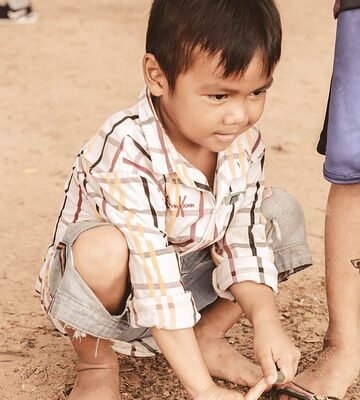Understanding the Impact of Social Media on Children
This article aims to explore the impact of social media on children, discussing both the benefits and drawbacks, as well as providing guidance on promoting online safety and privacy for kids, integrating technology into family activities, and more. From understanding child development milestones to setting boundaries on screen time, we will delve into key strategies for parents to navigate this ever-changing landscape.
Child Development plays a crucial role in grasping the effects of social media on young minds. Research suggests that children’s brains are still developing, and excessive exposure to screens can hinder cognitive development, lead to sleep disturbances, and negatively impact emotional well-being.
Furthermore, social media platforms like Instagram, TikTok, and YouTube have become integral parts of childhood, providing a space for self-expression, connection, and entertainment. However, the curated nature of these platforms can often create unrealistic expectations and promote consumerism.
Child Development: Milestones, Ages and Stages offers a wealth of information on normal developmental stages, which is essential in understanding how social media might influence these processes. For instance, understanding the difference between physical development (growth) and cognitive development (mental growth) can help parents make informed decisions about their child’s digital habits.
Child Development suggests that children at different stages may benefit from varying levels of screen time. Parents should consider these developmental guidelines when deciding on the right balance for their child:
- Children under two years old should not use screens, as excessive screen time can hinder speech development and cognitive growth.
- For children aged 2 to five years, parental guidance is recommended, with a maximum of one hour of high-quality educational content per day.
- Children between six and twelve years old should have more autonomy in their screen time but still require regular checks and limits on time spent on screens.
It’s also essential to recognize that social media platforms can have a significant impact on children’s emotional well-being. Cyberbullying, online harassment, and the pressure to present a perfect digital persona can cause distress and anxiety in young people.
Promoting Online Safety and Privacy for Kids is vital in protecting children’s personal data and preventing exposure to inappropriate content. Parents can take the following steps:
- Set up parental controls on devices, limiting access to mature content.
- Establish open communication channels about online interactions and digital citizenship.
Parents can also explore alternative platforms designed for children, such as educational apps and websites that promote learning through interactive games and engaging content. Some popular options include Duolingo, National Geographic Kids, and BrainPOP.
Integrating Technology into Family Activities can be a fantastic way to promote healthy screen habits while fostering quality time together. Here are some ideas:
- Organize family game nights, featuring board games, puzzles, or video games designed for the whole family.
- Plan digital scavenger hunts, where children can solve clues and riddles using their devices.
By understanding child development milestones, recognizing the potential risks of social media, and implementing strategies to promote healthy screen habits, parents can help their children navigate this complex world with confidence. Remember, it’s all about balance – finding that sweet spot where technology supports learning and connection, without compromising physical or emotional well-being.




